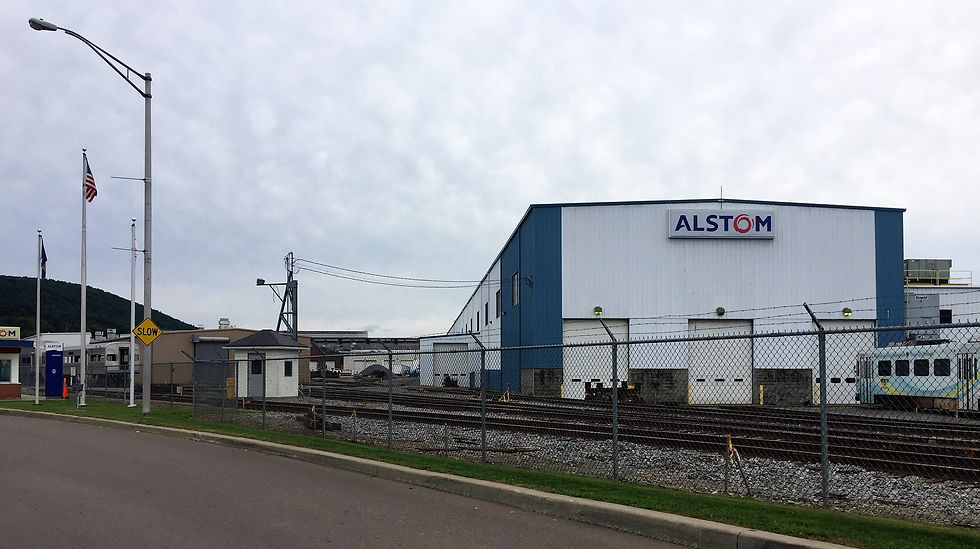Talking Capitalism in Hornell, NY: Part 1: History
- Sarah Stookey
- Sep 8, 2018
- 3 min read
Updated: Nov 3, 2018

Hornell, first stop on the road trip after leaving New Britain, is a town of about 8,000 people in the Finger Lakes region of western New York State. I knew of Hornell because it is the hometown of my brother-in-law's extended family. I have been very fortunate to be very warmly welcomed and generously hosted for the last couple of days by his aunt and uncle, Dick and Barb Clancy. Thank you so much to all the Clancys!
Hornell is a fascinating place to look at capitalism, particularly at the kind of changes that have taken place in the last few decades and as an example of the relationships between labor, capital and government.
Like many smaller cities in the U.S. Hornell, has a long history of manufacturing and industry, a core of economic activity that sustained family and civic life for generations. For Hornell the defining industry has been the railroads. As I sit here writing I can hear - and feel - the a train rumbling by. Starting in the mid-19th century Hornell was a central hub of the New York and Erie railroad, running between New York City and Chicago.
As a corporation, "the Erie" was chartered by the (New York State) government in the 1830s. Corporate charters of publicly-traded companies are an important aspect of capitalism: grants by a state (not Federal) government to allow private investors to make a profit - under certain conditions. The Modern Corporation and Private Property (1932) Berle and Means, legal scholars of the Depression, provide a very useful history and analysis of the relationship between corporations and the institutions and norms of democracy. Most basically, they emphasize how government has exercised its authority to encourage holders of capital to invest in projects (like railroads) perceived to serve the public interest at the same time they enforce rules and regulations intended to protect the public (from, for example, excessive risk-taking by management.
For a hundred years Hornell was a center for the construction of the railroad in the region and the steam engine shop in Hornell was the repair center for the entire Erie line. The demand for labor attracted local and many immigrant families, including substantial Irish and Italian populations (see The Erie Railroad by W. Greene, a fascinating recollection of this era).

The hard, often-dangerous, work and ingenuity of these workers created wealth for the non-local (mainly New York) shareholders of the Erie company including famously, Jay Gould, who dramatically manipulated state government to maintain control of the company. But the company's success also allowed Hornell to thrive. Management-level employees of the railroad and business owners of the general economy prospered, building grand homes.

Older residents of today recall a bustling downtown, with packed sidewalks and movie theaters bustling on a Saturday night.

The Erie company merged with the Lackawanna railroad in the 1960s. With the rise of transcontinental trucking the railroad industry began to decline. Very destructive flooding in 1972 was another blow. In 1976 it was subject of a federal rescue, becoming part of the federally-owned Conrail.
The railroad industry continues in Hornell today in a much more limited form. Alstom, a French transportation company is using the former Erie Lackawanna shops to develop high-speed trains (The French government has played an important role in Alstom's history; it received a financial rescue by the French government in 2003).




Comments